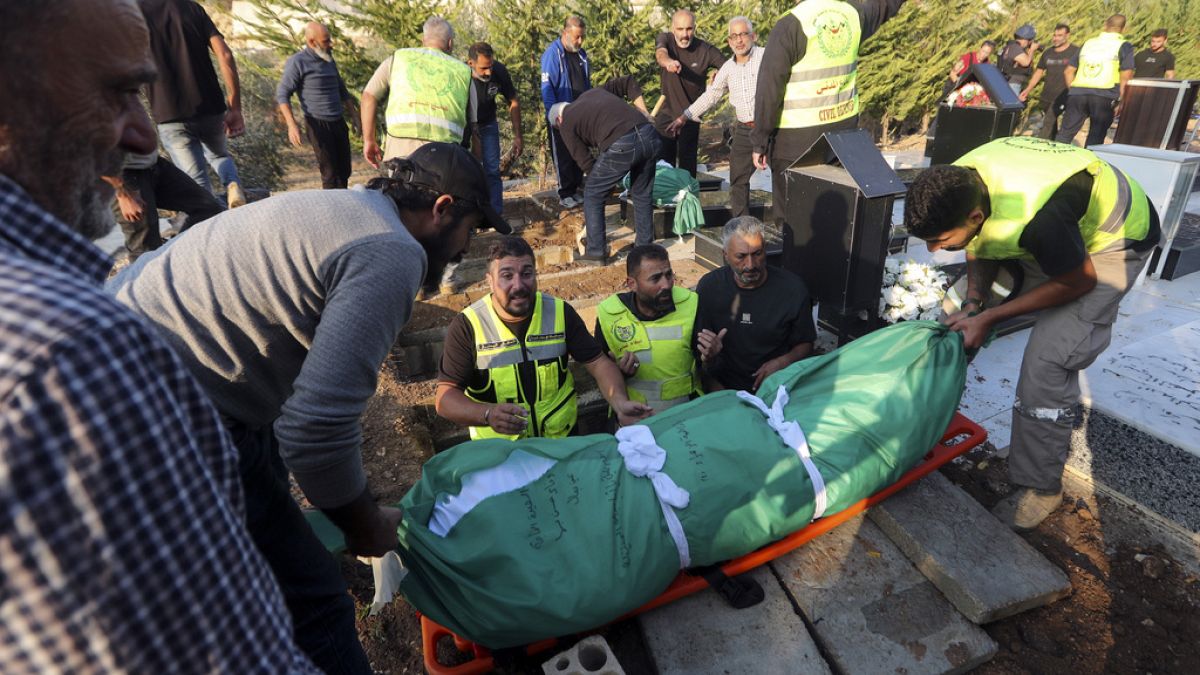Israel conducted airstrikes on Beirut’s southern suburbs near Lebanon’s only airport, claiming to have targeted Hezbollah facilities. On the same day, an Israeli drone strike hit a car, killing three and injuring seven, including UN peacekeepers. Israel has continued to hit Lebanon with airstrikes, claiming all targets are legitimate Hezbollah facilities and militants, with Thursday seeing the latest round of attacks. Several large airstrikes hit Beirut’s southern suburbs in the early hours of the day, including a site adjacent to Lebanon’s only international airport. The Israeli Defence Force (IDF) issued an evacuation notice for the site, citing Hezbollah facilities in the location, but locals denied the presence of such facilities. The airport was not directly targeted, and commercial flights by Middle East Airlines continued. Another drone strike hit a car on a main highway outside Beirut, killing one woman.
The same day, 100 members of Lebanon’s parliament sent an “urgent message” to UNESCO asking for the protection of the country’s heritage sites. This came after Israeli airstrikes near archaeological sites in Baalbek and Tyre. Legislators alleged that Israel committed atrocities and human rights violations during the conflict in Lebanon. The legislators urged UNESCO to protect historic sites in Lebanon, including Baalbek, Tyre, and other valuable areas facing danger due to increasing atrocities. Israel’s airstrikes near UNESCO-listed Roman ruins in Baalbek and the Tyre Hippodrome raised concerns about potential damage to these UNESCO World Heritage sites. France’s Foreign Minister Jean-Noël Barrot expressed hope for progress towards a diplomatic solution to the conflict, suggesting that the election of Donald Trump as US president could aid in achieving a peaceful resolution.
During his visit to Jerusalem, Barrot met with Israeli Foreign Minister Israel Katz and emphasized the need for a diplomatic solution in the Middle East conflict. Barrot highlighted Trump’s desire to end wars in the region and called for an agreement that would lead to the release of hostages, a ceasefire, humanitarian aid to Gaza, and preparation for the future. Barrot stated that the Palestinian question would persist regardless of the American administration in power. Since the conflict between Israel and Hezbollah began in 2023, Lebanon has witnessed around 3,000 deaths and 13,500 injuries, as reported by the Health Ministry.
The airstrikes on Beirut’s southern suburbs and the drone strikes targeting vehicles have raised tensions in Lebanon, with residents expressing concerns over the destruction of private properties and potential harm to civilians. Despite the claims by Israel that the airstrikes targeted legitimate Hezbollah facilities, locals and legislators have refuted these assertions, calling for the protection of heritage sites and an end to the conflict. The appeal to UNESCO underscores the significance of Lebanon’s historical sites and the need to safeguard them amid ongoing hostilities.
With France advocating for a diplomatic solution and emphasizing the role of the US administration under Donald Trump, there is hope for progress towards peace in the region. The recent attacks near UNESCO-listed sites have underscored the vulnerability of Lebanon’s cultural heritage amid the conflict. As the situation escalates, international efforts to end the violence and protect civilians and heritage sites become increasingly crucial. The ongoing conflict between Israel and Hezbollah has taken a toll on Lebanon’s population, with thousands of casualties and injuries reported since the conflict began.
Efforts by legislators, foreign diplomats, and international organizations like UNESCO are vital in seeking a resolution to the conflict and ensuring the protection of Lebanon’s heritage sites and civilian populations. The urgency to address the escalating violence and potential risks to historical landmarks in Lebanon remains a priority for global peacekeeping efforts. As tensions persist in the region, the need for diplomatic engagement, humanitarian aid, and ceasefire agreements becomes more pressing to prevent further devastation and loss of life in Lebanon.











